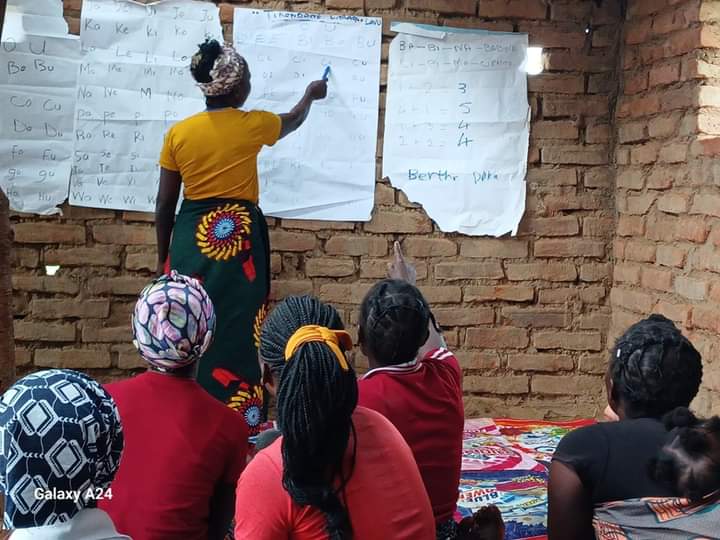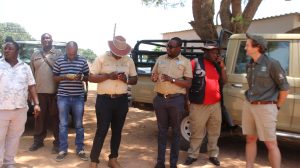By Chitalu Kapambwe Tembo
“To reduce extreme poverty and intergenerational transfer of poverty and extreme vulnerability by 2030.’’
This is the core mandate of the Ministry of Community Development and Social Services who are providing various services to the general citizenry through the implementation of various social protection programmes.
The Ministry of Community Development and Social Services has been providing welfare programmes for vulnerable communities across the country, with the objective to improve people’s livelihoods, which includes reduction of hunger and an improvement to social amenities such as education for children through better school attendance.
The Ministry is also responsible for facilitating the provision of equitable basic social protection services to the general public, for inclusive sustainable, human and community development.
The Department of Community Development is therefore set to resolve and instrument the reduction of poverty and vulnerability, as well as economic inequalities, through the provision of livelihood empowerment interventions to individuals, families and communities, in order to realise the aspirations of the vision 2030 and Sustainable Development Goals (SDGs).
The social protection programmes under the Ministry have been in existence from 2003, with an improvement and inclusion of more programmes, in order to enhance the welfare of beneficiary households.
The programmes offered include the Keeping Girls in School, which was introduced in 2016 is an education grant, meant to enable the girls to buy school requisites such as books, shoes and uniforms, as well as other needs that help them ease their education life.
Keeping Girls in School National Coordinator Willie Kaputo revealed that the programme which was earlier just meant to support girls with their secondary education, has now included a component that ensures that there is enhanced capacity for the KGS beneficiaries to transition from school to work.
Mr. Kaputo explained that this is being done through the tertiary support being provided for all the grade twelve graduates once supported on the KGS programme.
Other programmes include the Alternative livelihood Initiative, which has transformed the lives of rural women across the country, through various supportive projects. The women undergo a training for 21 days in financial literacy before they are empowered with some form of capital to start-up businesses.
The Social Cash Transfer Programme is another programme being spearheaded by the ministry. The programme is the largest programme and cuts across a wide section of beneficiaries across the country.
Introduced in 2017, the Social Cash Transfer programme has also birthed the Keeping Girls in school programme, from where beneficiaries on KGS are derived from.
The Social Cash Transfer has now been digitized, as of December 2023, with beneficiaries in far flank areas now able to receive their funding via mobile money.
Another programme is the Food Security Pack, which provides farmers with fertilizer and seed for farming purposes. Additionally, others are also put on the village banking initiative, while others are exposed to various skills, through the skills training programme.
The Ministry recently undertook a monitoring and evaluation tour of Eastern Province, where it was discovered that about 183, 073 households have been captured on the social cash transfer programme, across all the 15 districts in the region, while over 5000 girls are being aided with education grants under the Keeping Girls in School Programme.
Lundazi District Commissioner, Marjory Banda, appreciated the efforts being made by the Ministry of Community Development in trying to alleviate poverty levels at household and individual levels.
“It is important to check on the programmes, and see how they are faring. Thank you for economically empowering the people of Lundazi with a sustainable livelihood,” She said.
Boniface Shawa, a beneficiary under the Skills training programme, was once a convict, but through the tailoring skills learnt while in prison, he has now opened up a tailoring shop and has two employees working for him.
“I started off with just one machine, sowing in the market corridor, I have since expanded my business. I now have three sewing machines, which I get on rent and my tailoring business is growing, thank you to the government for considering me to be part of the programme,” Mr. Shawa said.
16-year-old Gloria Longwe, a beneficiary of the Keeping Girls in School programme in Lundazi also shared “I stopped school due to my parent’s incapacity to send me to school, I have since returned to school after being identified as a KGS beneficiary.”
The women have not been left to stand alone as the department has stretched empowerment programmes to Lundazi business women who have initiated a village banking that has contributed to transforming their lives.
62-year-old Mercy Musonda narrated that she started saving on the village banking programme in 2015 and managed to buy cement which later built a shop. While Janela Mvula educated her children through the village banking initiative and also expanded her business in the market.
In Mambwe district, the women beneficiaries who are mostly on the Supporting Women Livelihood initiative are not only grateful to the government, but also appreciate the knowledge gained through financial literacy.
“I was a maid, now I am a business owner and it is because of the K2700, I received in 2021, I have managed to boost my vegetable business,” 44-year-old Hellen Mwale lamented.
The men are no exception to those receiving empowerments. James Daka, 49, of Chenjya village in Mambwe district is a proud beneficiary of the Food Security Pack, having received two bags of fertilizer and maize seed.
“I thought the programme was only for women, but even though we men are benefitting, I am able to feed my family, as well as earn an income,” said Daka.
“Records show that most households are now food secure, and statistics also show that there is a drop-in malnutrition cases,” said Mr. Daka with a smile.
In Chipata District, the Ministry of Community Development and Social Services, has equally scored positives through the successful implementation of the social protection programmes.
Chipata District Administrative Officer, Kapembwa Sikazwe expressed happiness that the programmes are uplifting the welfare of the people in the district.
In Chipata district alone, about 72 clubs have been registered, with about 2700 plus beneficiaries on the Food Security Pack Programme, while those on the Social Cash Transfer amount to over 12,000.
“We do not segregate as to who receives our aid, we are all inclusive, we have the able bodied and also the physically challenged on all our programmes,” disclosed Mr Sikazwe.
Government is also implementing the Emergency Social Cash, which is given to households or individuals badly hit by disasters, to help cushion their needs.
Jane Jere, 64, a widow, who is a village banking beneficiary, from Navutika compound in Chipata, has used her support and financial literacy gained, to help others grow their financial dependance. She proudly explained how she has single handedly built a house, but also put up the Kasusu Navutika village banking with fellow women in the community.
Showing expressive happiness is 77-year-old Aliness Phiri, who is grateful for being put on the Social Cash Transfer, revealing that she has managed to build two houses as a widow.
Also, a beneficiary is Charles Manda of Kaumbwe market in Chipata’s Muchini area who was bedridden for 15 years but has now recovered. Mr. Manda now owns a shop after being put on the Social Cash Transfer programme in 2016.
The Ministry of Community Development also conducts adult literacy programmes as part of its empowerment agenda. Tikondane Literacy Group in Chipata’s Lwangeni constituency, is one of the beneficiary groups.
Tikondane literacy programme has enrolled 25 students with the oldest aged 61 and the youngest aged 21 years.
The adult Literacy programme in Eastern Province has awakened the young and old, who are taking advantage of the lessons to improve their knowledge in financial literacy. In Petauke’s Malowa village, about 56 community members have been enrolled in the adult literacy programme.
Nyimba District Commissioner, Paul Daka, is alive to the fact that the district has also benefited from the national cake, citing social protection programmes as testimony to the eradication of poverty, especially in the rural areas.




